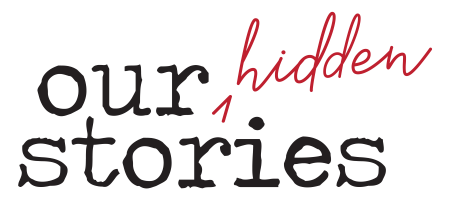
My son has a rare genetic disorder called Phelan-McDermid Syndrome and he doesn’t even know it. He is as happy as … well, honestly, he is the happiest kid I know. He falls at least 30 times a day, and he just picks himself back up none the wiser. He is 4 years old and can’t use words. He LOVES food, and he can’t chew, at least not well. This is not typical. My son will never grow to be the man I dreamt he would be when he was growing inside my belly, but he will grow to be the man he was supposed to become; this is probably the first of many hard lessons you will learn as a special needs parent.
Who really has it the worst?
Another hard concept to grasp is that you may mourn a child who is alive. It confuses everyone around you, even if you share with them your child’s limitations. They are always so cheerful when insisting that your child will defy the odds. After all, isn’t that what we are programmed to think? Healthy, happy, well-educated people such as myself and my husband, with a house ironically with a picket fence, a dog, and the “perfect” family made up of one girl and one boy—we always defy the odds. You can be anything you want to be if you work hard enough … at least that’s what we’re told. What is more the “American dream” than that? Even with my child’s possibilities of never being able to speak, fall in love and get married, or have his own children, and of always needing supervision for his protection for the entirety of his life, we have to think we are the “lucky” ones because it isn’t “that bad”; after all, it could be so much worse.
This led me to the question, “Who really has it the worst?” If we are conditioned to believe, “It could be worse,” then what is truly the worst-case scenario? These are the thoughts that haunt me at night as my mind begins to wander, leading me into another daunting night of insomnia. Is a life of limitations really the best he will ever have, the best we will ever have?
[…] our son would never be the independent man that we had imagined set in.
He would never pass on the family name.
When I was young, I would tempt fate by declaring, “It can’t get any worse,” and it always did. I then got wiser and realized if you tempt fate, you will be bitten. It started out in small ways. I thought I would never date a man who was balding, but I did. I thought I would never get married, but I did—to the guy who is balding, actually. I thought I would never have a child, but we did. After my daughter was born, I realized I should stop saying never, give in and let things take their course. I tried not to focus so much on milestones or on what others were doing and focused on us. That worked for us because being a mom was so much harder for me than I thought it would be, even though I knew it would be hard … which was half the reason I struggled with the idea of being a mother. When I got pregnant with my second child, a son, it was a dream! My daughter would have a sibling! At the 20-week ultrasound, they asked me if we wanted an amnio done. I said that there was nothing they could tell me that would change anything. The truth is, they would never have identified this syndrome anyway through the amnio but looking back I do regret the thought. I was naïve, tempting fate again.
When I found out through the ultrasound that I was having a boy, there was a sense of pride as the family name would live on. It was scary and exciting. That night, after we found out, while the rest of the house was sound asleep, I let myself cry. I was terrified of the higher rate of autism in males, but I tried to push that fear deep inside figuring I was overreacting. I reminded myself that our daughter was healthy, beautiful, and strong. I ate well, took my vitamins, and before we knew it he was here.
I thought he was special the moment he was born, but something was different. I didn’t cry with him when the doctor laid him on my chest as I had with my daughter when I first saw her. That haunted me. Flash forward to getting those genetic test results identifying our son’s syndrome read to us, and, the crushing realization our son would never be the independent man that we had imagined set in. He would never pass on the family name. Had we tempted fate once too often?
Laughter that was once pure music and joy has the potential to flip a switch from that to pure sadness
I have read so many parent and caregiver stories about those who don’t seem to struggle as much as I feel I do. Even my husband, who is going through the exact same thing as I am albeit in his own way, cannot understand the way in which I am dealing with all of my realizations and the speed at which I am.
I want to fight some days, scream other days, and cry—oh, how I want to cry, but no one in my house or any of my friends will let me. What? I mean, we generally don’t want people to cry. We literally say, “don’t cry,” and will run over, hug, sing a song, tell a joke, do anything to not have someone cry. I don’t know if this is cultural, but even alone I rarely let myself cry, and if I do, it’s not for long.
But if I can’t cry, how can I begin to heal?
My pain is not the worst in the world, but it is the worst pain I have ever felt. I have been through many types of loss, but this one is the hardest: the loss of my dream son. The loss is in my face all day every day, and my son doesn’t even know it. His laughter that was once pure music and joy has the potential to flip a switch from that to pure sadness in less than a nanosecond as my mind wanders to the future. His victories have never felt like my daughter’s did as my son is still behind not only by months but by years. And the shame I feel as a parent resulting from this … that shame just increases daily.
I have a child who is happy. He hugs, and it’s the best hug you might ever have because when he does it, you know he means it. He can’t say a word, but he makes sounds. He CAN walk if it’s not for too long or too far; it’s not perfect walking, but he can do it. I am lucky. We are lucky. But I still feel like my world went from color to black and white, and for a moment every day I am punched in the gut by that feeling—that in my own little world, this is the worst thing there is.
I am not selfish; I am a realist.
I understand that it is okay for us to be completely devastated by our unexpected circumstances and our inability to change them. We are allowed those moments of grief each day, which I hope will get fewer and farther apart as we go on. It is okay for parents and caregivers to feel horribly, terribly, utterly sad for the child they’ve lost and for the child that they have and love. It is the same child, and that concept is so deep, so overwhelming, that even people who are going through a similar experience may not understand your pain. Tomorrow may be better, or it may be worse, but you are not alone, even when it feels as if you are.
Others out there are feeling a loss, too, just in their own way.
Photo by carsten güth from FreeImages




Beautifully written! I realise reading this for 2minutes and living it 24/7 is so very very different. One thing is certain – our kids are the most authentic humans we know… And probably teaching us to be authentic too. Thank you for sharing your heart.
Thank you Brigitte, our kids are non-stop teachers for sure.